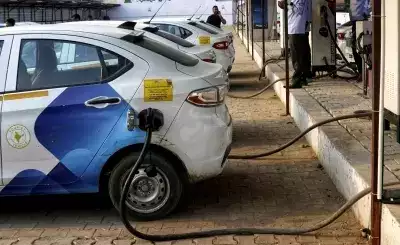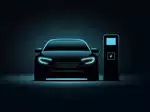EV penetration slows, India faces challenge to hit 2030 target

India’s electric vehicle (EV) penetration has grown at an annual rate of approximately 200 basis points (bps) between FY21 and FY24 but needs to double to 380 bps per year to achieve the national target of 30 per cent EV adoption by 2030, according to a report by FICCI-YES BANK.
The report, titled “Driving ZEV Transition – From Center to State,” emphasized that the current pace of growth is insufficient to meet the ambitious EV30@30 target. It underlined the need for accelerated adoption supported by renewed and aggressive policy interventions at both state and central levels.
While India’s EV adoption is gaining momentum, with top-performing states such as Delhi (11.5 per cent EV penetration), Kerala (11.1 per cent), and Assam (10 per cent) leading the way, the report noted that five states contributed to over 50 per cent of EV sales in FY24. Gujarat, Odisha, Kerala, and Punjab showed the highest compound annual growth rates (CAGR) between FY21 and FY24, underscoring regional disparities in EV adoption.
The report pointed out that many state EV policies are nearing the end of their tenure, posing a challenge to sustained investor confidence and policy continuity. It called for an urgent review and renewal of these policies until 2030 to provide a stable framework for the EV ecosystem. A long-term policy environment, it argued, would help align the efforts of states and the central government in achieving India’s decarbonization goals.
To fast-track EV adoption, the report recommended mandating EV integration in public transport systems, such as state transport buses, and fleet operations, including government-owned vehicles and urban waste management fleets. It also highlighted the importance of continued fiscal incentives like road tax exemptions to drive consumer adoption.
On the supply side, the report urged greater localization of EV manufacturing, including assembly processes and value chain development, to reduce reliance on imports. Investments in research and development, workforce skilling, and sustainability measures were also identified as critical to building a robust EV ecosystem.
Infrastructure was flagged as a key area for improvement. The report proposed a phased approach to deploying EV charging stations, especially in Tier-2 cities, rural areas, and along highways. It stressed the need for real-time monitoring and maintenance of chargers to ensure reliability and consumer confidence.
The transport sector, which accounts for a significant share of India’s emissions, is a cornerstone of the country’s net-zero commitment by 2070. While central policies provide a strong foundation, the report emphasized that states must align their strategies with the broader national goals. It recommended establishing dedicated EV coordination agencies at the state level to ensure effective implementation and regular progress reviews.
The report concluded that a collaborative effort between states and the central government, combined with actionable, time-bound targets, is essential to bridge the gap between ambition and execution. Achieving India’s EV targets, it noted, will require a sustained focus on policy, infrastructure, and awareness-building to drive a successful transition to zero-emission vehicles.

